Four Seasons Wind Research Group successfully held the second regular postgraduate meeting in the second half of 2019
On December 20, 2019, all graduate students and staff of the Sijifeng Research Group participated in the second regular postgraduate meeting in the second half of 2019 and the fifth business capability demonstration of the center held at Nanjiao 112. In this regular meeting, postgraduate students in the security direction and environmental direction mainly displayed the business trip practice summary and document reading experience sharing, and the center staff introduced the basic technology and detection technology. Their unique reports promoted mutual learning between graduate students and center staff, and at the same time enhanced mutual exchanges.

Fig. The second regular meeting of graduate students and the fifth business capability of the center in progress
In this regular meeting, Zhang Meng from the training department of the center first introduced the latest management system of the Sijifeng research group, including daily management such as attendance, business trip, and stamping, regular meeting system management, and paper management. Li Dandan, a student in the research field of the environment, gave a brief report on the LDAR work of Qingyang Petrochemical that he participated in from three aspects: work content, practical gains and insights, and also let the new students of the research group have a better understanding of the practice and research trends of the research group . Xia Zhitong of the Central Environmental Technology Department introduced the work requirements for the land survey information collection of key industries and enterprises. He introduced to everyone from three aspects: work background, information collection content and information collection technical requirements, let us understand that information collection is an enterprise A basic task in land use investigation is also the basis for risk screening, preliminary investigation and risk classification. Liu Zhongyuan, a student in the research field of environmental research, shared his work when sampling soil, air, and groundwater in the North China Oilfield (the first oil production plant) and the underground water seal cavern of the Huangdao Petroleum Reserve Base, and made a summary; Li Xiaoqiong from the testing center I introduced the ion chromatograph to us in detail from the basic principles of ion chromatograph and the requirements for its use, which gave us a deep understanding of how the ion chromatograph analyzes organic and inorganic compounds. Wang Zilin, a student in the research field of environmental protection, took us to learn the calculation method of unorganized volatile organic pollutants and source strength in LDAR. Xu Tonggao from the center made a comparative analysis of the three processes of condensation, adsorption and absorption in the oil and gas recovery process, and let us understand the differences between the three processes in terms of equipment complexity, purification effect and energy consumption. Student Ma Kaikai, who is in the research direction of safety, explained and summarized the LDAR detection he carried out in the field practice of Lihuayi VOCs project. Through what he saw and heard, we also learned about the familiarity and safety of the process within the enterprise. There are still some omissions in the work. Xiaoyu Wu from the center shared with us her previous project research, introducing the ZSM-5 modification from the subject background, experimental plan, ZSM-5 modification investigation, reaction thermodynamic calculation, ZSM-5 life and regeneration performance inspection and conclusions, etc. The properties of C6 and C7 olefin aromatization performance and regeneration performance. Zhao Shuang, a researcher in the security direction, shared with us some of the tips he summarized when reading the literature. According to the four processes of preliminary screening, reading the article, intensive reading and taking notes, we help us sort out the article and understand the details of the article. . Finally, Liu Qinglong from the Safety and Technology Department of the Center introduced in detail the intelligent safety risk management and control system of the chemical park based on key chemical process safety technologies. The system can use information technology to realize the dynamic management of basic information of the park risk, and use intelligent means to realize the safety risk of the park process. Control, use digital means to guide emergency rescue in the park, and use quantitative means to innovate the park supervision mechanism.
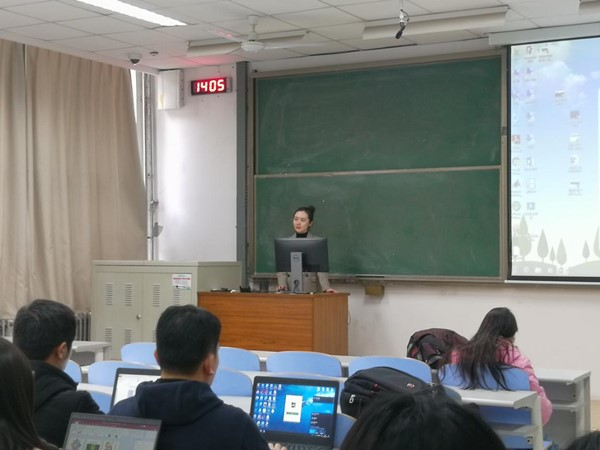
Figure Zhang Meng from the training department of the center is introducing the management system of the research group
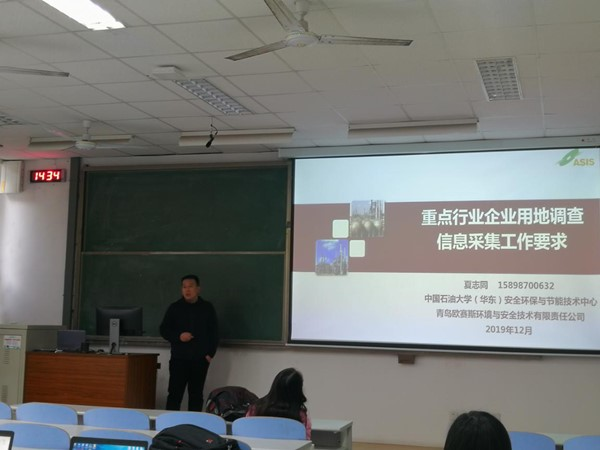
Figure Xia Zhitong of the center is explaining the requirements for the collection of land survey information for key industries and enterprises
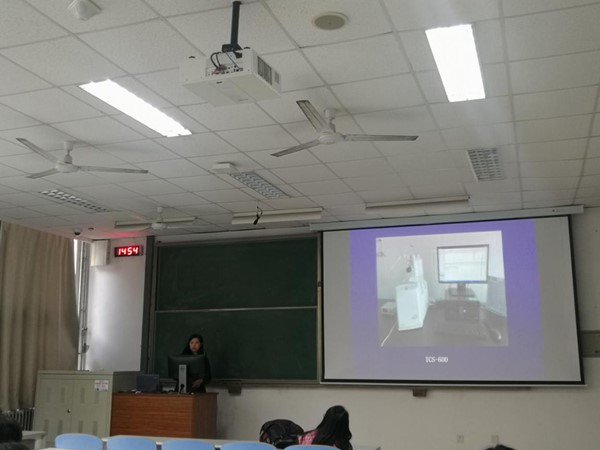
Figure Li Xiaoqiong of the testing center is introducing the working principle of ion chromatograph
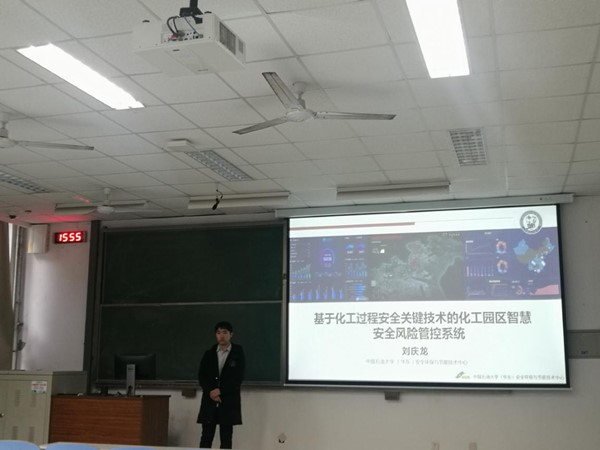

Figure: Center Liu Qinglong introduces the intelligent safety risk management and control system of chemical parks based on key chemical process safety technologies
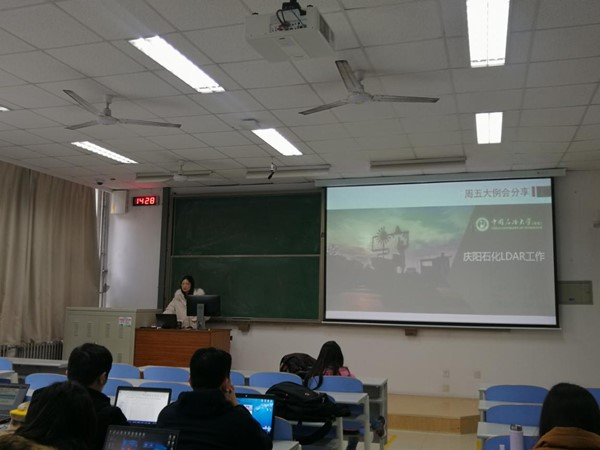

Picture: Li Dandan is sharing the LDAR work of Qingyang Petrochemical
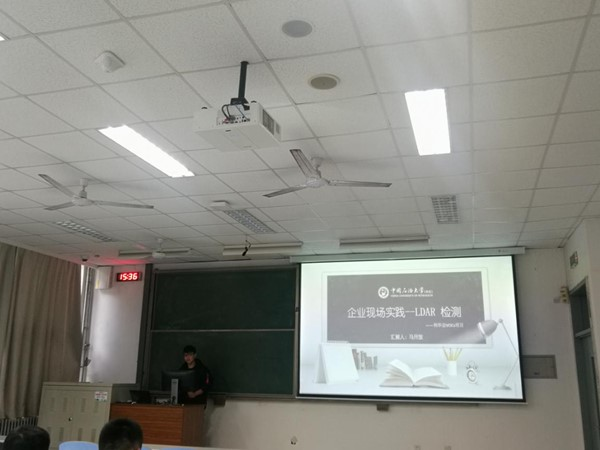

Picture: Ma Kaikai is sharing the LDAR detection of Lihuayi's VOCs field practice
The successful holding of this major regular meeting and the fifth business capability demonstration is an advancement and inheritance following the first major regular meeting and the fourth business capability display in the second half of 2019, and it will also lay a solid foundation for the smooth holding of future major regular meetings. Foundation. Through this regular meeting, all the graduate students in the Four Seasons Wind Research Group further studied the rules and regulations of the research group, so as to more strictly regulate their own words and deeds in the later period, and treat their future research projects with a more rigorous attitude; at the same time, the center The staff's explanation also further expanded the graduate students' practical vision, improved everyone's ability in practical operation, and laid a good foundation for everyone's future on-site practice!
Recommendation
- 2020 year-end summary conference agenda
- Notice of 2019-level oral defense of opening report
- Four Seasons Wind Research Group 2020 Orientation Conference Process
- Notice of the Mid-term Inspection Meeting of the 2018 Graduate Thesis of the Sijifeng Research Group
- 2020 Four Seasons Wind Research Group Alumni Return to School Agenda
- Four Seasons Wind Research Group's 2017 graduate thesis pre-defense arrangement
- 2019 year-end summary conference agenda
- Notice of the 5th Business Capability Demonstration Activity and Regular Meeting of the Research Grou
- Four Seasons Wind Research Group's 2018 graduate thesis opening and defense arrangements
- Notice of the 4th business ability display activity and regular meeting of the research group in 2019
- Fourth China CCPS Process Safety Conference Call for Papers
- [Expert lectures]"Petrochemical industry VOCs pollution investigation work Reading" Management Gu
- Academic Report: Risk Based Process Safety
- 【Academic report】PhD Thesis report high levels of outstanding do
